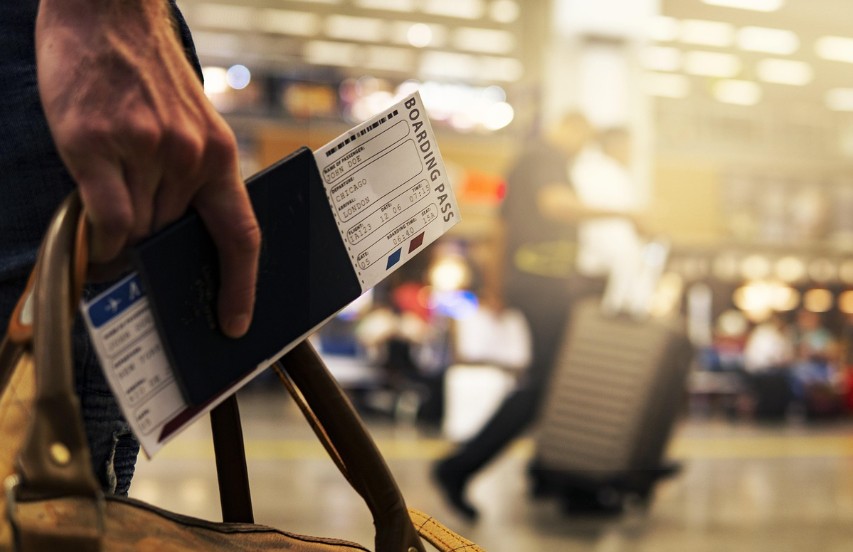In 2025, the UK government has issued official travel advisories for 18 countries, urging caution or complete avoidance for British nationals. Whether you’re planning a holiday, business trip, or visiting family, understanding the risks tied to these destinations is now essential.
Travelling against official advice not only jeopardises your safety but can also invalidate your travel insurance and restrict access to UK consular support.
This comprehensive guide explains the UK travel advisory for 18 countries in detail, covering the reasons behind each warning and what you should know before considering travel.
Why Has the UK Government Issued This Advisory?
The UK travel advisory 18 countries list is a response to:
- Widespread military conflicts and terrorism in the Middle East and North Africa.
- Civil unrest, political instability, and fragile ceasefires.
- Increasing risks of airspace closures, flight disruptions, and sudden outbreaks of violence.
The travel advisories are based on continuous monitoring by the UK Foreign, Commonwealth & Development Office (FCDO) to protect British citizens from harm.
The UK Travel Advisory 18 Countries
1. Cyprus
UK Advice: Travel with caution, especially near the UN buffer zone separating the Republic of Cyprus from the Turkish-controlled north.
Current Situation:
Cyprus remains a popular destination for UK holidaymakers, but its proximity to escalating tensions in the Eastern Mediterranean has raised concerns. Military exercises, territorial disputes, and the long-standing division between the Greek Cypriot south and Turkish Cypriot north create a sensitive environment. While most of Cyprus is safe, the UK government advises caution near the demilitarised zones, especially as regional airspace becomes more restricted.
2. Turkey

UK Advice: Avoid all travel to areas near the Syrian and Iraqi borders. Remain vigilant in major cities like Istanbul and Ankara.
Detailed Advisory:
Turkey has been affected by terrorism, border security challenges, and political protests. The southeastern provinces, near Syria and Iraq, are particularly volatile with occasional cross-border shelling and military operations. Large urban areas have previously been targeted by terrorist groups, making public spaces, transport hubs, and government buildings high-risk zones. Despite this, coastal resorts remain generally safe but still require caution.
3. Egypt
UK Advice: Avoid North Sinai and border regions. Exercise caution in major cities and popular tourist sites.
In-Depth Guidance:
While Egypt’s Red Sea resorts like Sharm El Sheikh remain open, North Sinai is considered extremely dangerous due to an active insurgency involving militant groups. Sporadic terrorist incidents, sometimes targeting tourists or transport networks, occur in Cairo and other urban centres. The UK government warns that travel to certain regions could put British nationals at risk of serious harm.
4. Morocco
UK Advice: Avoid remote desert areas and regions near the disputed Western Sahara border.
Travel Risk Assessment:
Morocco is generally seen as stable, but UK travellers are advised to remain alert in isolated areas. The ongoing dispute over Western Sahara has occasionally led to localised tensions and security incidents near border areas. The government stresses that protests in urban centres can turn violent quickly, even if the rest of the country appears peaceful to tourists.
5. Tunisia
UK Advice: Avoid border regions with Libya and Algeria and exercise increased caution in remote southern areas.
Security Status:
Tunisia has experienced terrorist attacks against tourists in the past, including high-profile incidents in coastal resorts and the capital, Tunis. The UK advises particular caution in border regions where smuggling, militant activity, and kidnapping risks are higher. Coastal areas remain accessible, but the security presence has been tightened around tourist hotspots.
6. Algeria

UK Advice: Strongly advised against travelling to border regions and remote mountainous areas.
Risk Summary:
Algeria is on the UK’s advisory list due to the continued threat of terrorism, particularly in the Saharan south and the mountainous Kabylie region. Kidnapping for ransom remains a risk in remote areas. Although major cities like Algiers are relatively stable, the UK urges travellers to avoid unnecessary exposure to high-risk zones far from central urban areas.
7. United Arab Emirates (UAE)
UK Advice: Exercise general caution, especially in light of wider Gulf tensions.
Traveller’s Briefing:
The UAE, including Dubai and Abu Dhabi, remains a major travel hub for UK nationals. However, its proximity to geopolitical flashpoints, particularly tensions between Iran and Gulf countries, places it on the advisory list. There have been drone attacks on oil facilities in the past, and the UK government highlights that while daily life is largely unaffected, the security situation could change quickly in the event of regional escalation.
8. Saudi Arabia
UK Advice: Avoid areas near the Yemeni border. Remain vigilant in major cities.
Travel Overview:
Saudi Arabia faces ongoing cross-border threats from the conflict in Yemen. In recent years, drone and missile attacks have targeted airports, oil facilities, and urban centres near the border. While cities like Riyadh and Jeddah remain popular for business travel, the UK urges caution as the security situation can deteriorate rapidly in response to regional developments.
9. Qatar
UK Advice: Stay alert, particularly during large events or periods of heightened regional tension.
Current Situation:
Qatar is generally a low-risk destination, but its involvement in Middle Eastern politics places it on the UK’s watchlist. British nationals are advised to monitor the news for regional escalations that could disrupt air travel or public safety. The UK also reminds travellers that laws and local customs can be very strict compared to the UK.
10. Bahrain
UK Advice: Maintain awareness of political gatherings and avoid areas where protests are taking place.
Detailed Advisory:
Although Bahrain is widely visited for business, it has a history of civil unrest and political demonstrations that can quickly escalate. Security forces often respond to protests with significant force. The UK advises that while day-to-day life is stable, the political environment remains sensitive and unpredictable.
11. Oman

UK Advice: Be vigilant, particularly near the Yemeni border and in remote desert areas.
In-Depth Guidance:
Oman is considered one of the more peaceful Gulf states, but its geographical location near conflict zones raises concern. The UK highlights that while the country is not directly involved in regional conflicts, the proximity to Yemen and occasional border security issues warrant a careful approach.
12. Kuwait
UK Advice: Exercise caution, especially during periods of regional military activity.
Travel Risk Assessment:
Kuwait has a strong relationship with Western nations, but its strategic location near Iraq and Iran places it at risk in times of regional escalation. The UK government warns travellers to stay alert to news about potential missile threats or airspace restrictions that could emerge with little warning.
13. Israel
UK Advice: Avoid Gaza, exercise extreme caution in the West Bank, and stay clear of border areas with Lebanon and Syria.
Security Status:
Israel is a key focus of the UK travel advisory due to ongoing conflict, rocket attacks, and civil unrest. Areas surrounding Gaza and parts of the West Bank frequently experience violence. The UK warns that British travellers may face serious risks in these areas and that disruptions to transport and access to consular support could occur rapidly in a crisis.
14. Occupied Palestinian Territories
UK Advice: Avoid Gaza completely and be extremely cautious in parts of the West Bank.
Traveller’s Briefing:
The situation in the Occupied Palestinian Territories is highly volatile. The UK specifically warns against all travel to Gaza, where the security situation is extremely dangerous. In the West Bank, violent clashes and military operations can erupt with little notice. The risk to British nationals is significant in these regions.
15. Lebanon

UK Advice: Avoid travel to the border areas with Syria and Israel. Be vigilant in Beirut and other major cities.
Risk Summary:
Lebanon has been struggling with severe political and economic crises, and border areas remain highly dangerous due to militia activity and the ongoing Syrian conflict. The UK government stresses that the fragile security situation can escalate rapidly, and British nationals could be caught up in violence or face severe travel disruptions.
16. Libya
UK Advice: Avoid all travel.
UK Government Insight:
Libya is currently considered one of the most dangerous countries in the world. The UK advises against all travel due to the breakdown of security, widespread militia violence, terrorism, and the absence of functioning diplomatic services. British nationals are strongly warned that if they enter Libya, there may be no consular support available.
17. Iran
UK Advice: Strongly advised against all travel to most parts of the country.
Current Situation:
UK-Iran relations remain tense. The UK government warns of a real risk of arbitrary detention for British-Iranian dual nationals and other British citizens. Iran’s political isolation and involvement in regional conflicts make it extremely high-risk, particularly given the absence of reliable support for UK nationals inside the country.
18. Syria
UK Advice: Absolutely no travel.
Security Status:
Syria is still experiencing an active civil war. The security situation is beyond dangerous, with regular bombings, terrorist activity, lawlessness, and a collapse of basic services. The UK strongly warns that there is no safe way to enter Syria and no possibility of consular assistance for British nationals who travel there.
What UK Travellers Must Do Before Considering Travel
If you must travel to any of the countries listed in the UK travel advisory 18 countries, you should:
1. Check the Latest Updates Regularly
The situation can change rapidly. Always monitor the FCDO website and local news up to your departure and while you are abroad.
2. Understand Your Insurance
Most standard UK travel insurance policies exclude cover for destinations where the FCDO advises against travel. Speak to your insurer to find out if you can obtain high-risk cover.
3. Register with the Nearest Embassy
This allows the UK authorities to contact you in an emergency and provide essential updates.
4. Have Exit Strategies
Identify alternative airports, border crossings, and know how you would leave the country quickly if required.
5. Avoid Risk Areas
If you must travel, stay away from border regions, military zones, and large public gatherings.
6. Secure Flexible Bookings
Use airlines and hotels that offer no-fee cancellations or flexible changes.
Can You Still Travel to Some of These Countries?
Yes, but with careful planning and an understanding of the risks.
For example:
- Cyprus, UAE, Qatar, Oman, and Bahrain remain accessible for tourism but require vigilance.
- Turkey, Egypt, and Morocco have specific regions that are safe, but some border zones should be strictly avoided.
- Libya, Syria, and much of Iran should not be visited under any circumstances, as per current UK government advice.
Final Thoughts: The Importance of Understanding the UK Travel Advisory for 18 Countries
The UK travel advisory 18 countries is a serious and carefully considered warning based on real, evolving security threats. While not all travel is impossible, each country listed comes with its own set of risks that British travellers must not ignore.
If you are planning to visit any of these countries in 2025, make informed decisions, ensure you are properly insured, stay updated with official FCDO guidance, and prioritise your personal safety at all times.
Travel can be one of life’s greatest experiences, but it’s essential to know when caution should take precedence over adventure.






